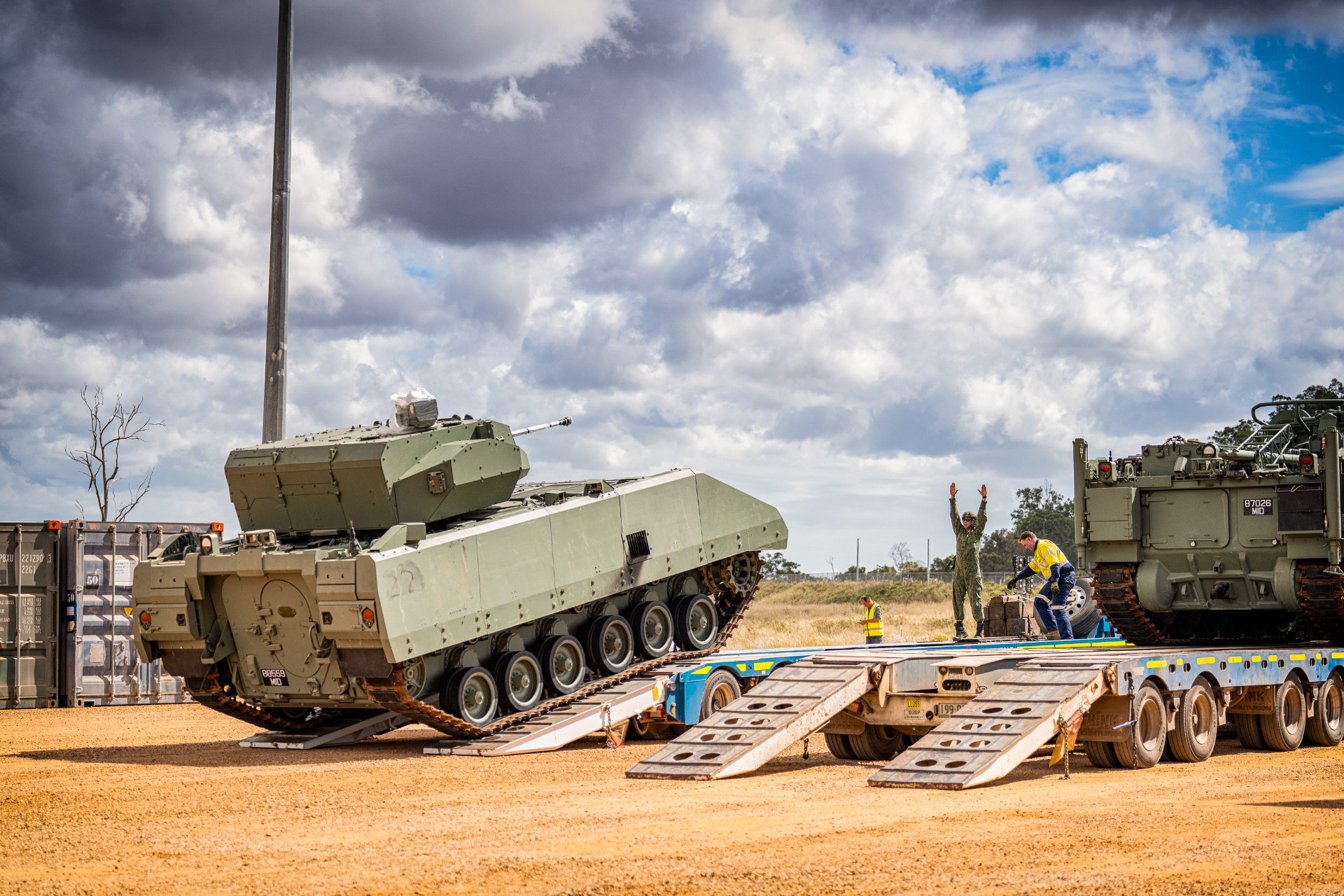OPS & TRAINING
SAF PREPS FOR OPS & TRAINING WITH ENDEMIC COVID-19
01 Jul 2021
In his annual SAF Day interview, Defence Minister Dr Ng Eng Hen talks about aligning with the national COVID-19 stance, how ops and training will continue and the focus for the SAF moving forward.
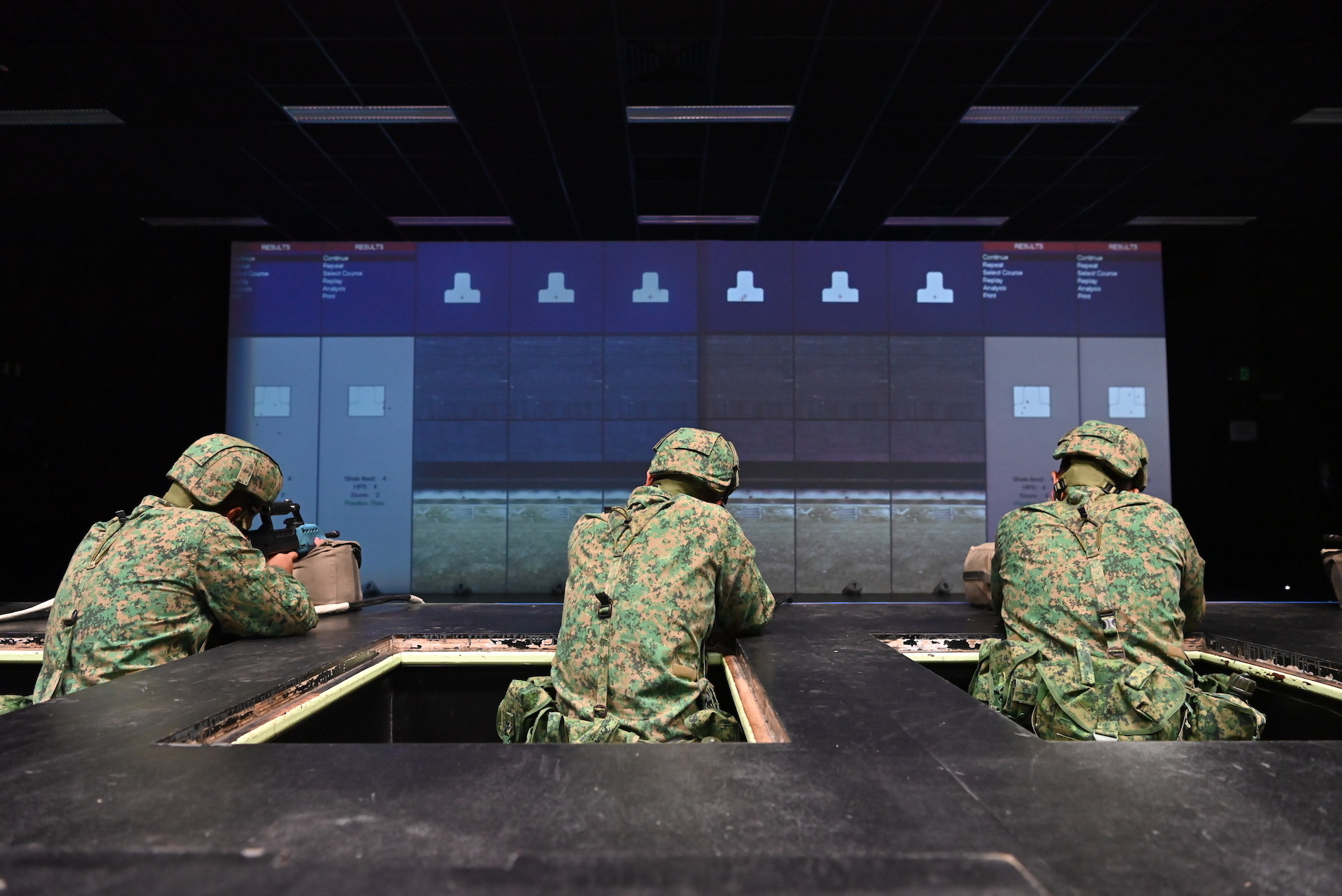
The Singapore Armed Forces (SAF) is shifting to dealing with COVID-19 as being endemic, in line with the national stance. This means recognising that activities carry on with the risk of infection always present, and that operational readiness has to be maintained with or without the disease.
Continuation of large-scale, high-end training will also take place; while the SAF keeps its focus on safety, counter-terrorism and cybersecurity.
These were the key points that Minister for Defence Dr Ng Eng Hen made in his annual interview ahead of SAF Day on 1 Jul. The interview was held after his visit to the Headquarters Sense and Strike at Mandai Hill Camp on 28 Jun.
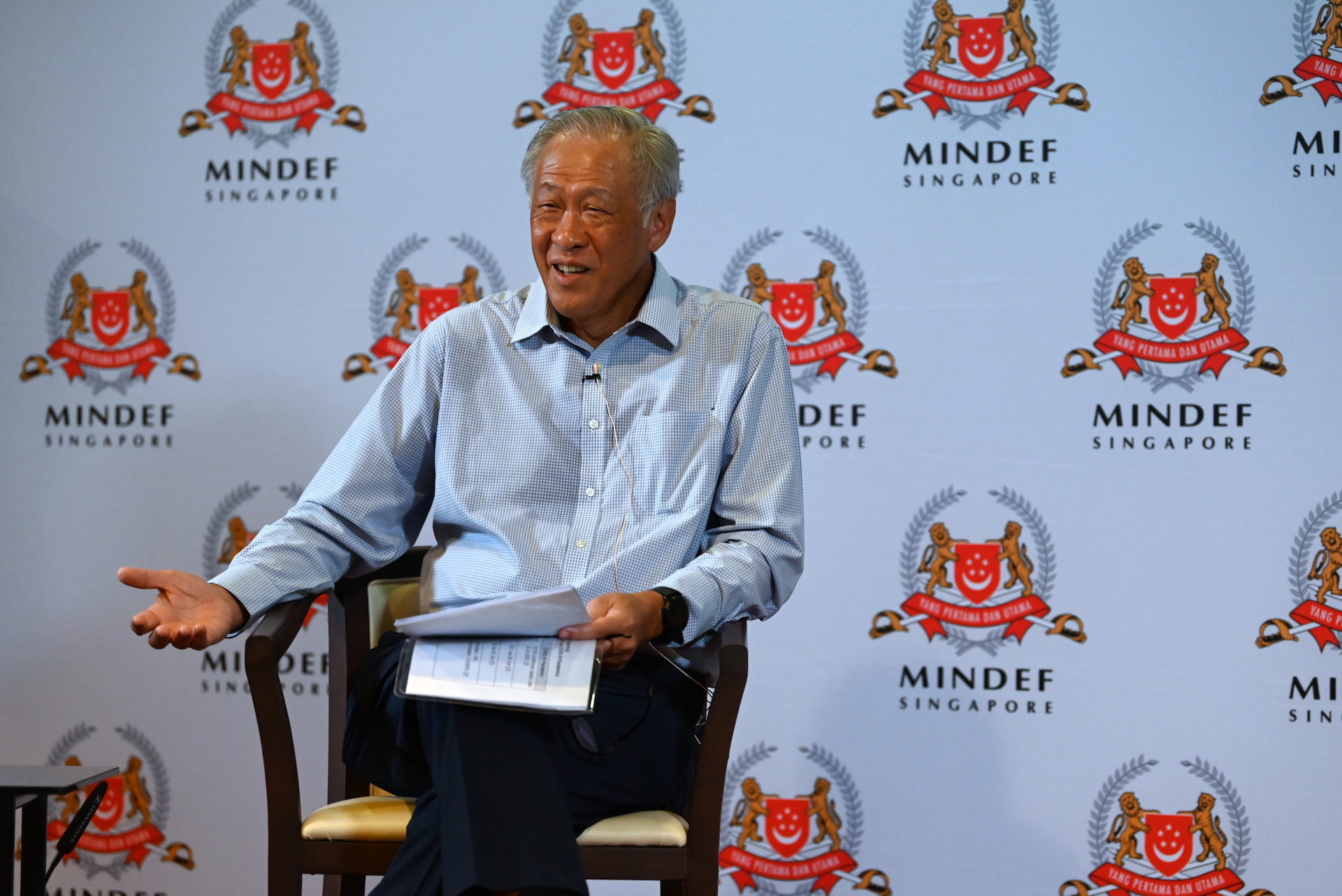
Dr Ng said: "Threats do not go on holiday; they do not care if you are dealing with the COVID-19 pandemic. In fact, they will show up in weakness."
He added that for the SAF to perform its duties, it cannot have the equivalent of a Circuit Breaker lockdown but must be prepared to minimise infections.
"It must execute its security functions without unnecessary restraints, but be prepared to isolate small groups if infections rise."
Standing ready amid COVID-19
The SAF's main measure for reducing the level of infections is vaccinations.
To date, 83 per cent of the Ministry of Defence (MINDEF) and SAF personnel – comprising Regulars and Full-Time National Servicemen – are fully vaccinated and this figure will hit 92 per cent by mid-July.
Dr Ng said: "Because we have reached such high levels of vaccination, restrictions can be eased to allow units to operate at maximum effectiveness, even for training and exercises."
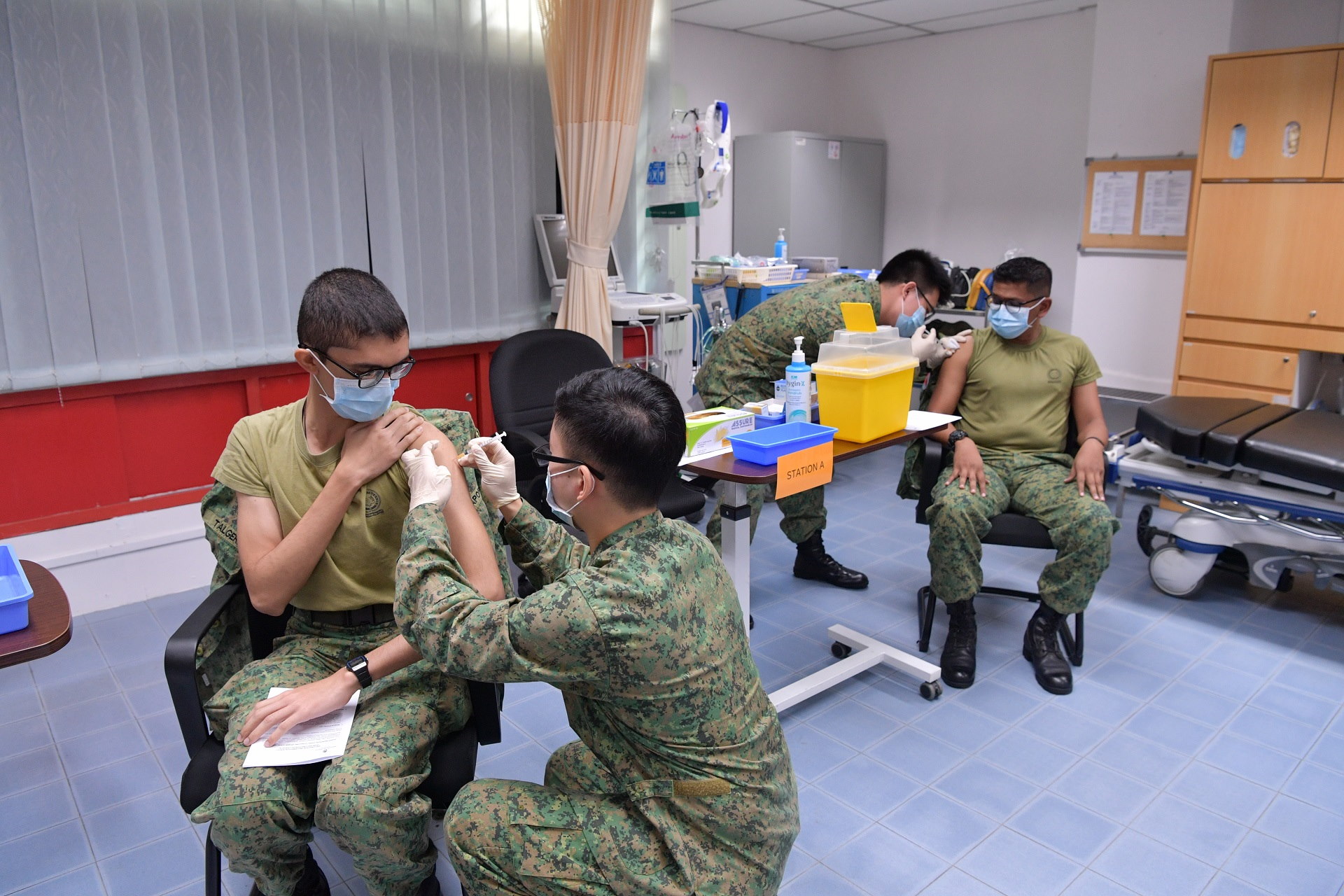
He noted that while the risk of infection was still possible, the severity of the disease has been shown to be milder among those vaccinated.
"Our assumption is not that there will not be COVID-19 cases within the SAF…but when the infection occurs, the measures that you take are much less," he said.
As part of its three-pronged COVID-19 strategy, the SAF will also strengthen its testing and surveillance, as well as continue its cohorting arrangements.
Frontline SAF personnel, such as those involved in the protection of key installations, as well as doctors and medics based in medical centres, have to go through rostered routine testing.
Operationally-Ready National Servicemen also go through swab tests when they return for their In-Camp Training (ICT); while at the Basic Military Training Centre (BMTC), recruits are given a pre-entry swab test.
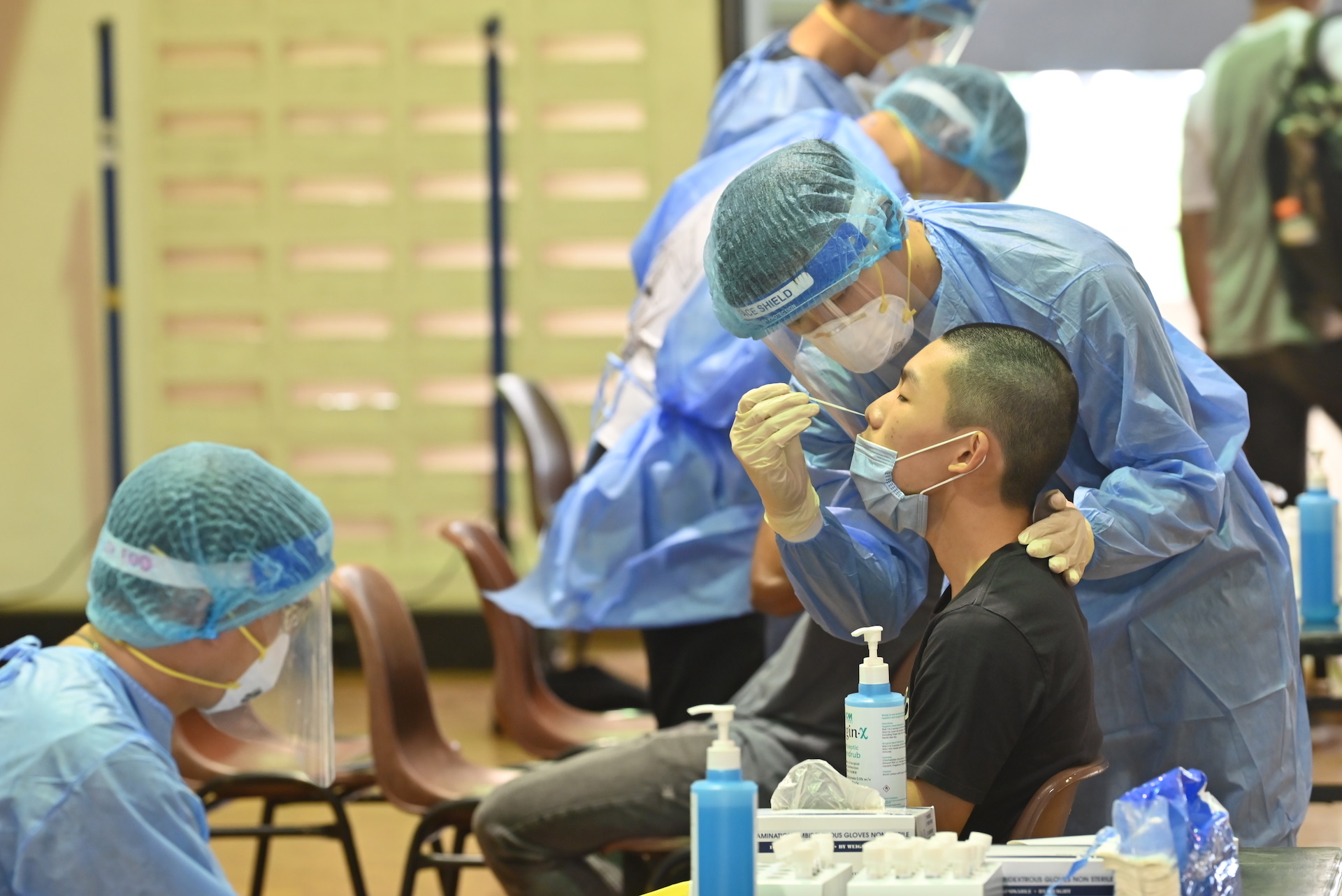
Dr Ng added that such measures were especially important for critical ops units, such as those involved in island defence, maritime security, air defence and counter-terrorism.
Training and exercises to go on
With the COVID-19 management measures implemented, activities such as ICT and NS Fitness Improvement Training will gradually resume. Overseas training has also continued, to allow servicemen to train realistically and proficiently, said Dr Ng.
Last August, the Republic of Singapore Navy continued with the Rim of the Pacific Exercise; while the Republic of Singapore Air Force (RSAF) took part in Exercise Red Flag – Nellis in Nevada, United States (US), this March.
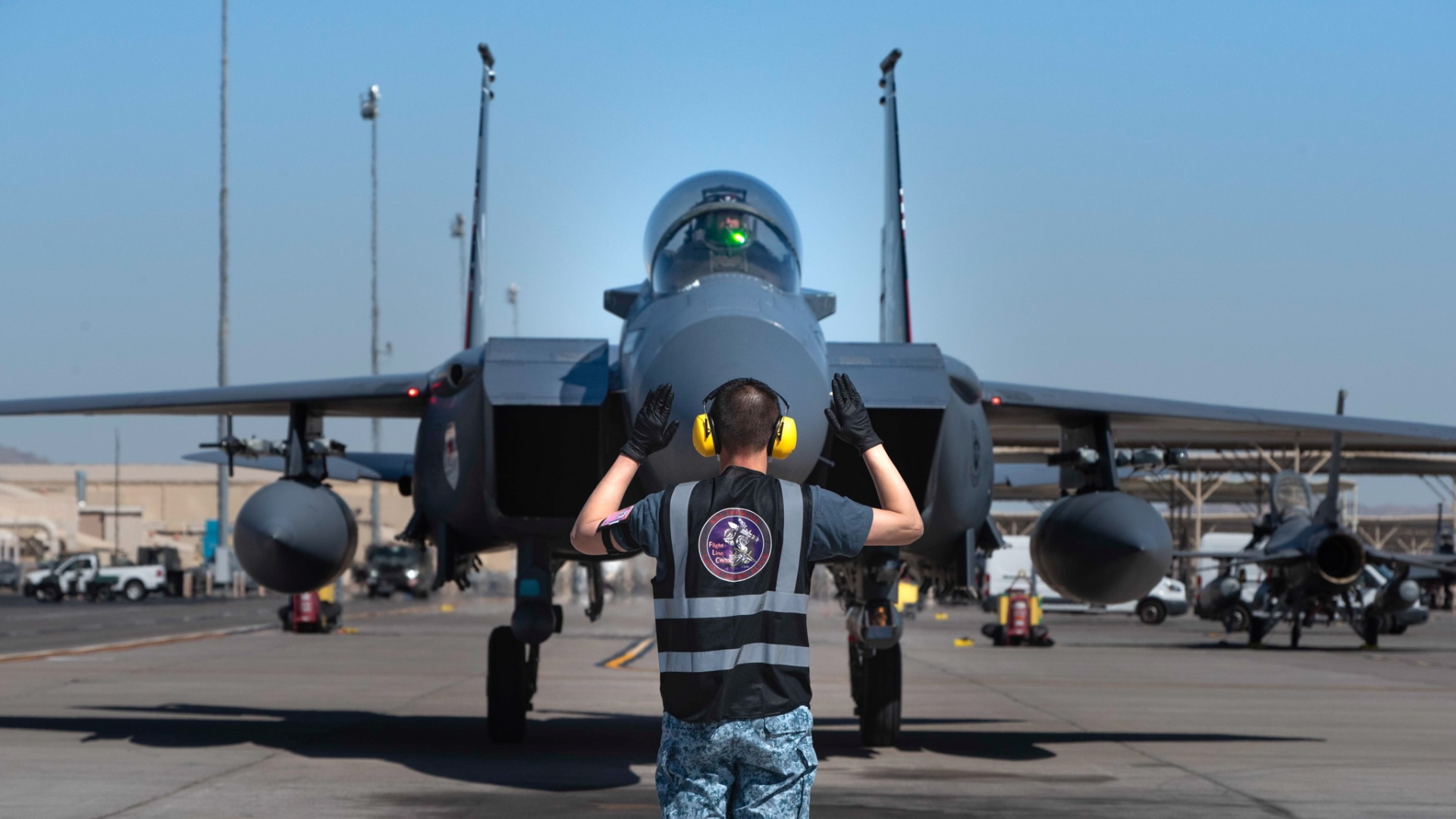
In September, the RSAF and Army will conduct Exercise Forging Sabre, a biennial integrated strike exercise held in the US.
This year's Exercise Wallaby, a tri-Service exercise held in Australia's Shoalwater Bay Training Area, is pending approval from the authorities. It was called off last year due to the pandemic.
In Singapore, the National Day Parade (NDP) is set to return to the Marina Bay floating platform as a physical event, with a combined parade and show. Parade participants go through routine testing before every rehearsal and have all received their vaccinations. NDP spectators will also have to be fully vaccinated.
Last year's NDP was held in a decentralised format with a separate morning parade at the Padang and evening show at the Star Theatre.
Keeping focus on safety, security and transformation
On safety, the External Review Panel on SAF Safety (ERPSS) – set up in 2013 to assess various safety aspects in the SAF – will continue its three-year term and visit BMTC this July.
The SAF Inspector-General Office has also continued its two-year audit cycles, to scrutinise safety practices in SAF units.
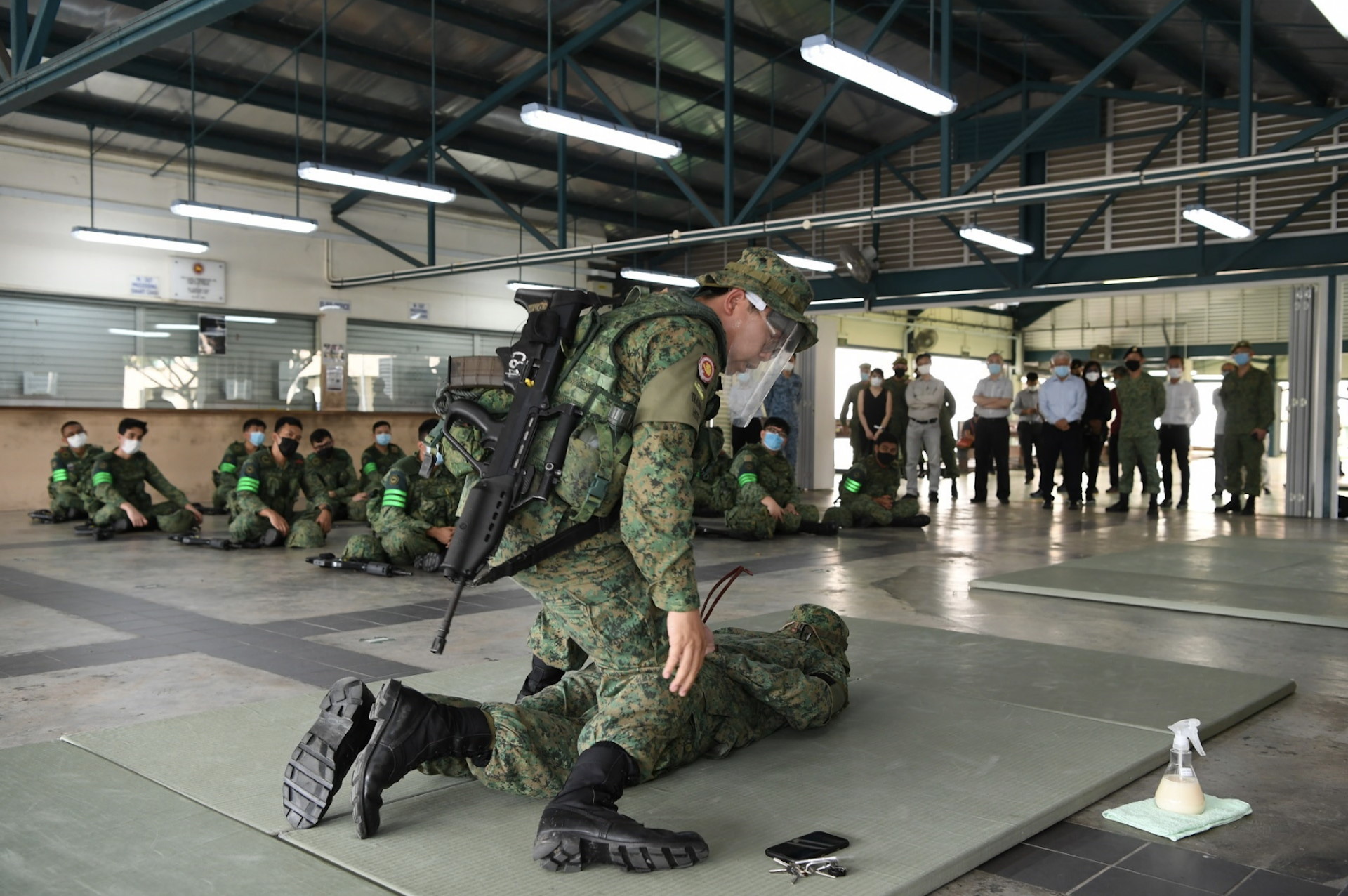
The SAF is also making headway in cybersecurity.
It officially stood up the Cybersecurity Task Force (CSTF) in December 2020, under the command of Chief of Command, Control, Communications, Computers and Intelligence, or C4I. This brought various SAF cyber units together under centralised command and control, thus strengthening the ability to detect potential cyber threats.
MINDEF/SAF will also be signing a new Memorandum of Understanding with the Singapore University of Technology and Design’s iTrust Centre for Research in Cyber Security. This will help build up the capabilities of CSTF, said Dr Ng.
Going forward, the SAF is on track for its next-generation transformation, he added.
The Army fully operationalised the 3rd Generation Combined Arms Division earlier this year. And as part of its move to the Next-Generation Army, it commissioned new sense and strike assets that allow it to "see better" and "shoot faster".
"We have been mindful to focus on the SAF’s development, even while dealing with COVID-19," Dr Ng concluded.
"I think the SAF has done quite well in both responding and helping to respond to COVID-19, as well as making sure that we have not taken the eye off the ball or been distracted."
ALSO READ IN OPS & TRAINING
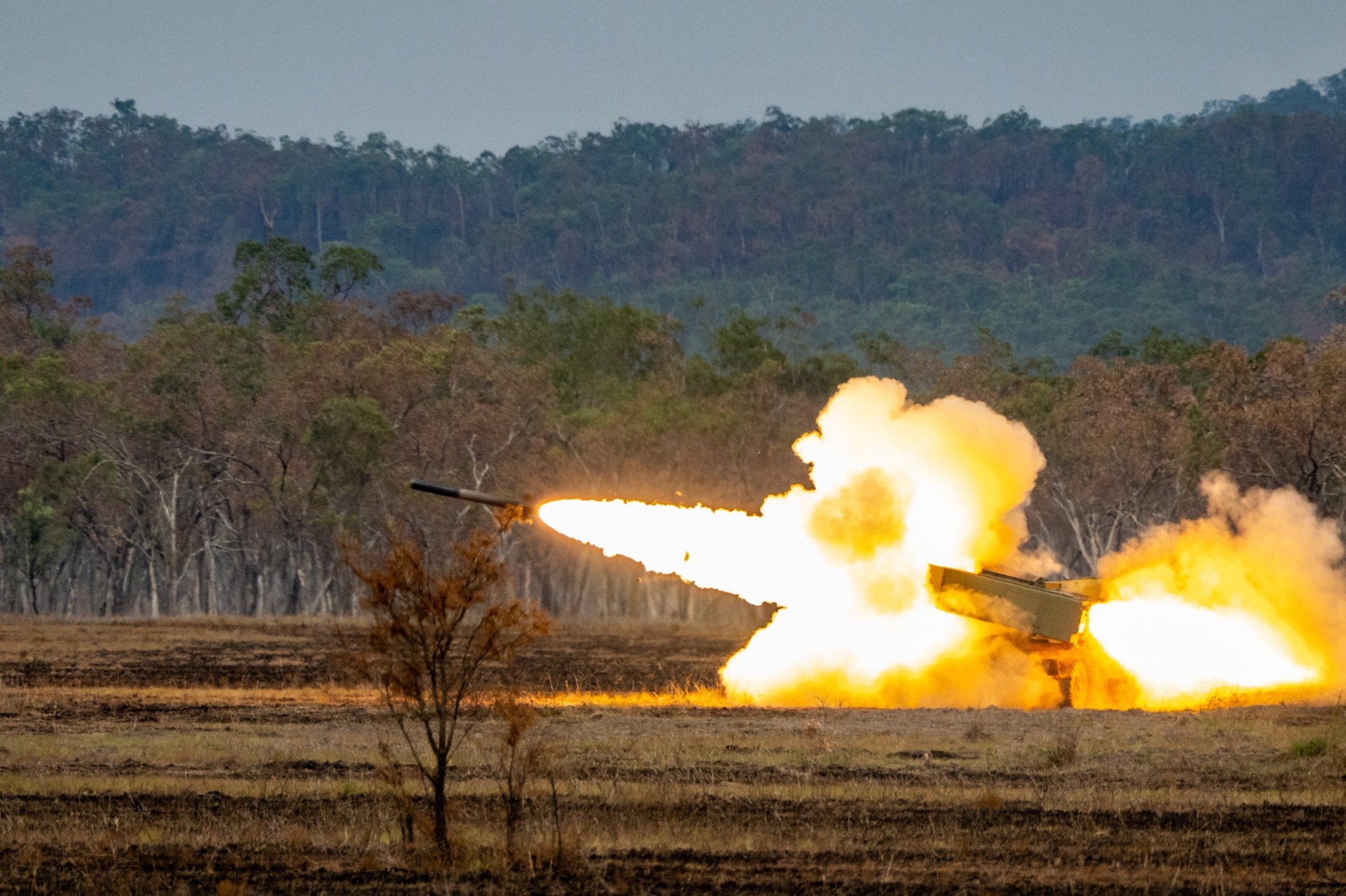
Exercise Wallaby 2025: To see better, shoot faster
31 Oct 2025
The SAF focuses on complex strike missions and multi-domain integration in Exercise Wallaby 2025, the 35th edition of its largest unilateral overseas exercise.
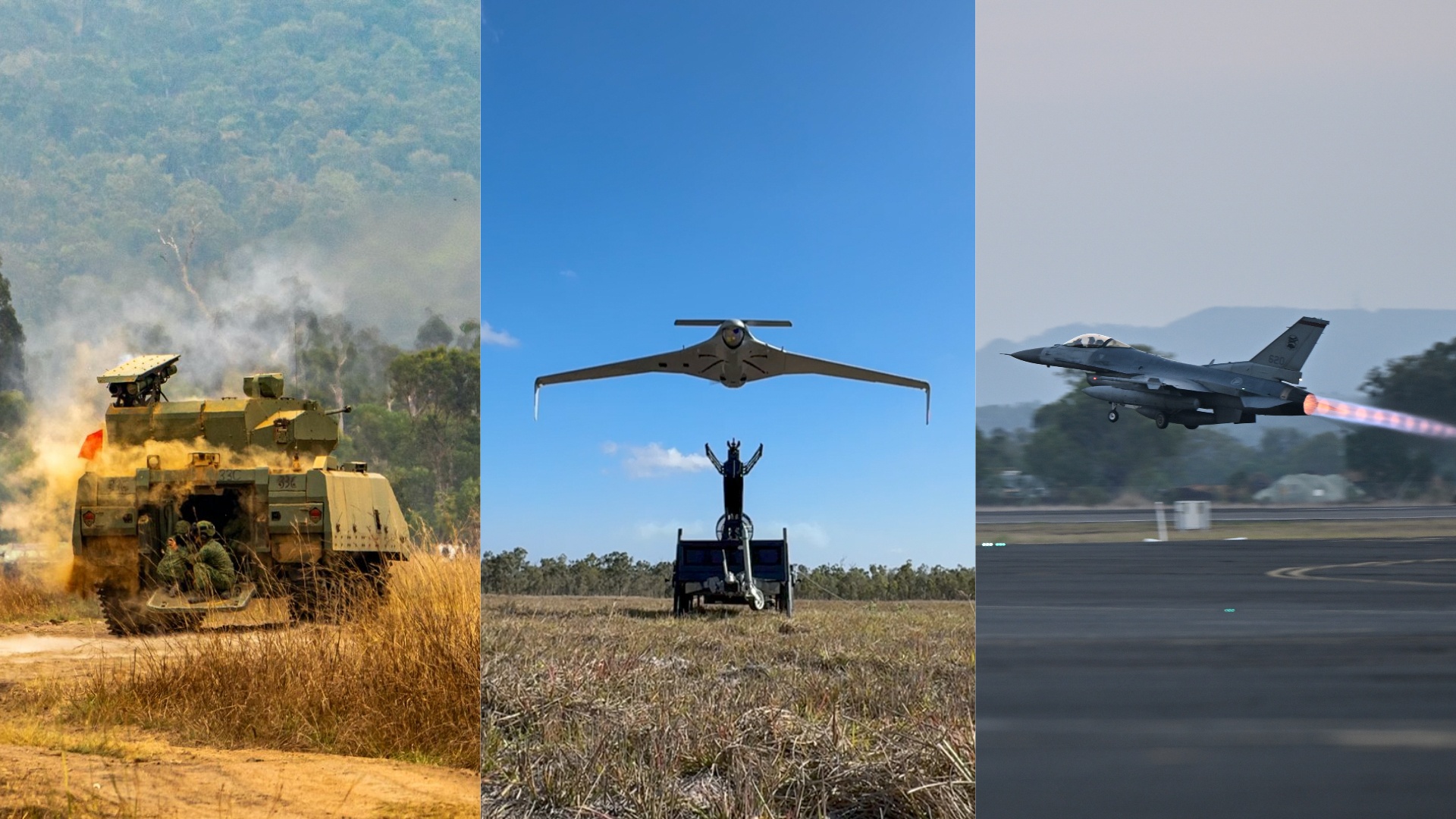
Ex Wallaby 25 – Greater Integration and Complexity
25 Oct 2025
The 35th edition of the SAF’s largest unilateral overseas exercise is an opportunity for expanded scale and deeper integration towards an effective, networked fighting force.

Ex Forging Sabre ramps up use of unmanned assets in integrated strike operations
12 Sep 2025
In this 10th edition of Exercise Forging Sabre, the SAF sharpened its cutting edge for the dynamic modern battlefield, with expanded integration between manned and unmanned platforms.


